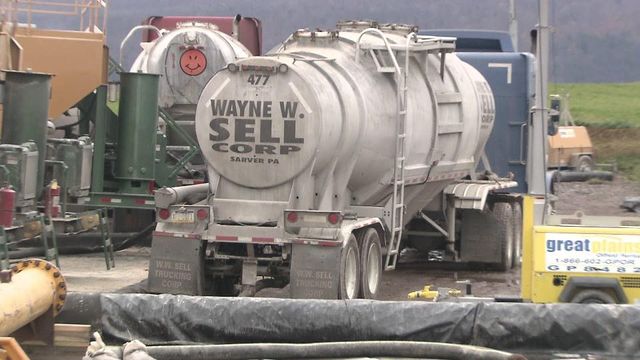Duke hosts fracking, gas drilling workshop
Duke University hosted a workshop Monday about the environmental and social effects of hydraulic fracturing and shale gas drilling in the U.S.
Posted — UpdatedThe workshop, held in Reynolds Theater, focused on environmental, legal and socio-economic components of the debate.
Academic experts from Duke, Cornell, Carnegie Melon and Pennsylvania State universities worked to decipher conflicting data on the environmental challenges.
"In a perfect world, I would slow it down, yes," said Rob Jackson, a biology professor at Duke.
Representatives from the Sierra Club and Exxon Mobile were also on hand, among others.
Judith Ferster, with the Sierra Club, said fracking seems like "sacrilege for someone who cares about nature."
"It's very dangerous, because once you wreck the place, it's very hard to go back," she said.
In some states, fracking is in widespread use and has resulted in new sources of energy, jobs and profits for landowners.
In other states, however, lawmakers are considering bans on the process because of worries that the chemicals used in the liquid that splits rocks and releases natural gas could leak into and contaminate groundwater.
"(It's) just standard supply and demand. You have a lot of resources available. Demand is down. We've had a relatively mild winter so far," said Michael Parker, with Exxon Mobile.
Although North Carolina currently has no natural gas production, geologists say six North Carolina counties have the potential for it, with the best prospects in Lee County. Shale rock in the Deep River basin also runs through parts of Chatham, Durham, Granville, Moore and Wake counties.
The state Department of Environment and Natural Resources is studying the issue of fracking and whether it should be allowed under state law. Its report is scheduled to be ready when the Legislature resumes its work in May.
• Credits
Copyright 2024 by Capitol Broadcasting Company. All rights reserved. This material may not be published, broadcast, rewritten or redistributed.






